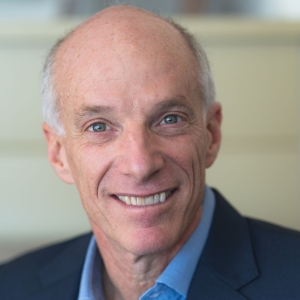David L. Sedlak
644 Sutardja Dai Hall
Tuesday 2-3
Thursday 3-4
By appointment

David Sedlak is a Vice Chair for Graduate Studies and Plato Malozemoff Professor of Environmental Engineering at UC Berkeley. Sedlak’s research focuses on the fate of chemical contaminants, with the long-term goal of developing cost-effective, safe, and sustainable systems to manage water resources. He is particularly interested in the development of local sources of water. Sedlak’s research has addressed water reuse--the practice of using municipal wastewater effluent to sustain aquatic ecosystems and augment drinking water supplies--as well as the treatment and use of urban runoff to contaminated groundwater from contaminated industrial sites as water supplies. Sedlak also received the Fulbright Specialist Award for New Zealand in 2019 and was elected to the National Academy of Engineering in 2016, one of the highest honors given to an engineer, among other notable achievements.
In addition to his laboratory and field research, Sedlak is interested in developing new approaches for managing the urban water cycle. He pursues these efforts through research coordinated through the National Science Foundation's Engineering Research Center for Reinventing the Nation's Urban Water Infrastructure (ReNUWIt), the Berkeley Water Center, and the National Alliance for Water Innovation. Sedlak is also the author of "Water 4.0", a book that examines the ways we can gain insight into current water issues by analyzing the history of urban water systems and "Water for All", a book that assesses water crises and potential solutions in light of a changing climate.
Sedlak's full list of Publications, Awards, Students, and Teaching information can be found here.
Ph.D., Water Chemistry, University of Wisconsin at Madison, 1992
B.S., Environmental Science, Cornell University, 1986
Sedlak’s research focuses on the fate of wastewater-derived contaminants, pharmaceuticals, toxic disinfection byproducts, and other chemicals. His research group has also studied approaches for remediating contaminated soil and groundwater by in situ chemical oxidation (ISCO) and advanced oxidation processes. Some of the research topics his research group is currently investigating include the use of engineered treatment wetlands to remove chemicals from effluent-impacted waters; treatment and management of concentrate from water reuse and desalination processes; the fate, transport, and transformation of poly- and per-fluorinated substances (PFAS); and the development of passive systems for treatment of chemicals in urban runoff. Here are a few of the projects Sedlak is currently working on below:
- Treatment Wetlands - Through the Horizontal Levee, Sedlak’s research group aims to study the efficacy of subsurface-constructed wetlands for treating wastewater effluent at the Oro Loma Sanitary District. Dominant removal mechanisms displayed so far within the Horizontal Le
vee include adsorption, (co-)precipitation, biotransformation, and plant uptake. Sedlak’s research team is interested in determining how the behavior of each potential sink changes with time. Through this research, the team will be able to develop an understanding of the expected performance and lifetime of future constructed wetlands for wastewater and other water treatment applications.
Electrochemical decentralized treatment - Electrochemical processes have emerged as promising technologies for water and wastewater treatment in recent years. These processes offer several advantages, including scalability and adaptability to different user requirements, ranging from individual households to large-scale industrial applications. With the advancement of off-grid energy technology, the potential for implementing electrochemical treatment systems in decentralized and point-of-use (POU) settings is growing rapidly. While much of the research in this field has focused on using electrochemical oxidation to remove persistent organic contaminants by developing specialized electrode materials, Sedlak's research group has taken a different approach.
Their objective is to harness the existing capabilities of electrodes to produce valuable chemical reagents. To achieve this, Sedlak's team is working on the development of simple and scalable modular electrochemical units that can be integrated into various systems. Their efforts involve developing modular electrochemical units that can be easily integrated into various applications, ranging from POU water treatment to decentralized systems. By leveraging the well-defined capabilities of electrodes, they aim to improve the efficiency, simplicity, and scalability of electrochemical water treatment technologies.
Brackish water management - Sedlak's research group is collaborating with the National Alliance for Water Innovations (NAWI) on desalination projects. NAWI has been selected to establish the DOE Energy-Water Desalination Hub. Sedlak, as the leader of NAWI's road-mapping activities, is inv
olved in identifying areas for research to reduce the cost and energy requirements of desalination. Desalination processes generate concentrated brine waste that is costly to treat and dispose of. This makes groundwater desalination projects impractical for many inland locations due to brine management expenses.
Sedlak's research group focuses on improving the treatment of brackish groundwater desalination brines, specifically in municipal water treatment facilities. Their current projects aim to enhance the understanding of scaling and precipitation phenomena related to calcium and silica in highly concentrated solutions. They also study the influence of antiscalant additives in this context.
News
No mentions in News
Spotlights
No mentions in Spotlights
Student Updates
No mentions in Student Updates


